A café to advance T cell research
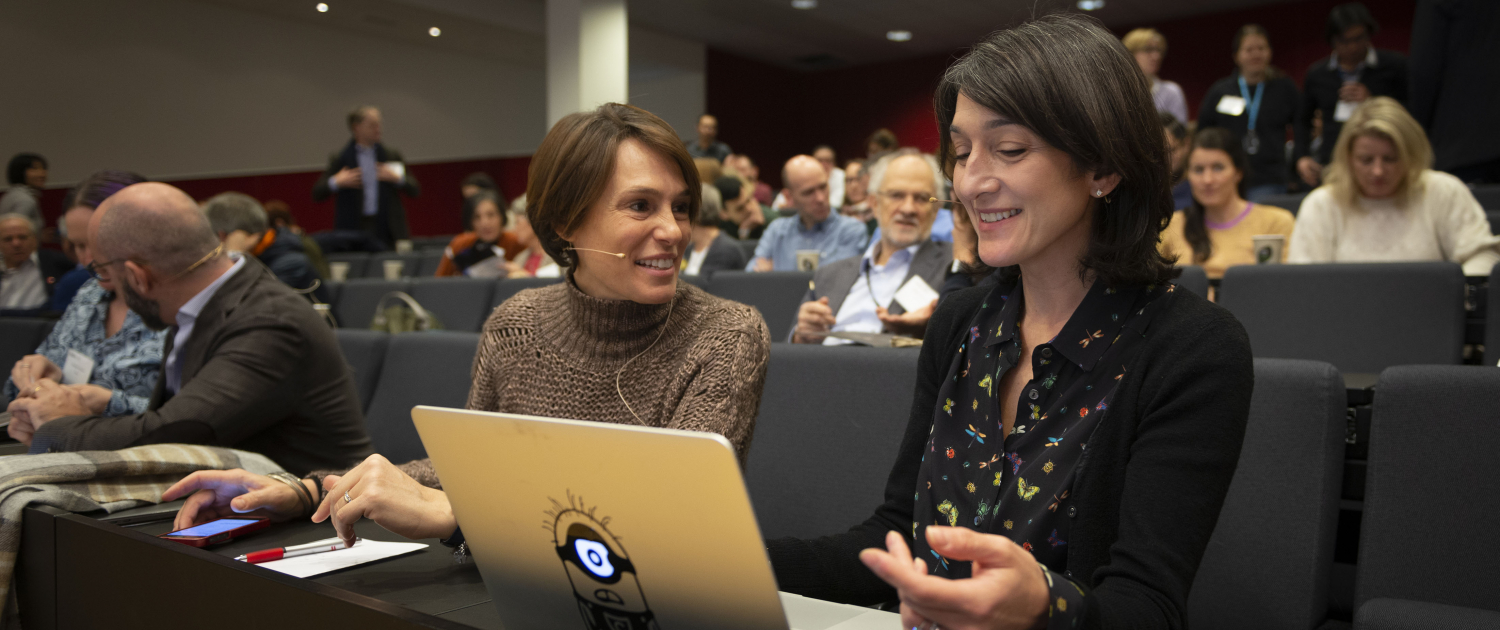
We want to accelerate cancer research in T cell immunotherapy!
In order to promote research collaboration, spread knowledge and exchange ideas, Oslo Cancer Cluster arranged a seminar together with Nature Research this week. The topic was T Cell Immunotherapy: Advances, Challenges and Future Directions.
What is T cell immunotherapy?
T cell immunotherapy is a rapidly growing area of research in cancer treatment. The research focuses on finding new ways to trigger the immune system to kill cancer cells.
The treatment method involves collecting T cells (a type of immune system cell) from a patient’s blood sample. The T cells are then modified in the laboratory so they will bind to cancer cells and destroy them.
One way to do this is called CAR T therapy. This involves adding a gene for a special receptor that binds to a specific protein (also called an antigen) on the patient’s cancer cells. The special receptor is called a chimeric antigen receptor (CAR). These cells are grown in large numbers in the laboratory and then infused in the patient to create an immune response.
Read more about CAR T cell therapies in this article from The National Cancer Institute
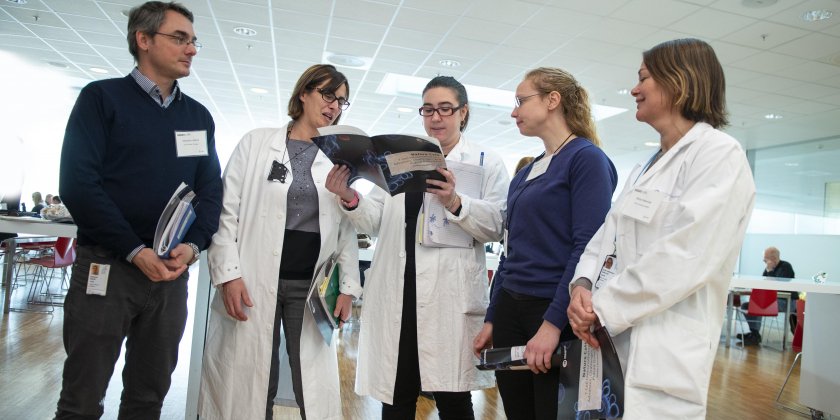
Many researchers attended the Nature Café for the opportunity to learn more about recent advances in T cell immunotherapy. Photo: Christian Tandberg
Why is cell therapy important?
Research into T cell immunotherapy is important, because it has the potential to treat and cure cancer. T cell immunotherapy can help cancer patients live longer and potentially has fewer side effects than traditional treatment methods, such as chemotherapy, radiation therapy and surgery.
However, more research is needed to make T cell immunotherapy work on all kinds of cancer. For example, some patients with haematologic cancer, cancers that develop in the blood-forming tissue, relapse into disease after treatment. Moreover, T cell immunotherapy does not work on all patients with solid cancer tumours yet.
Researchers wish to know why some cancers are resistant to T cell immunotherapy and why some patients acquire resistance to the treatment over time. Some patients also experience toxic side effects to T cell immunotherapy. Moreover, researchers are continually searching for possible new antigens (proteins) to target.
There are still many unanswered questions and that is why we need to accelerate the research.
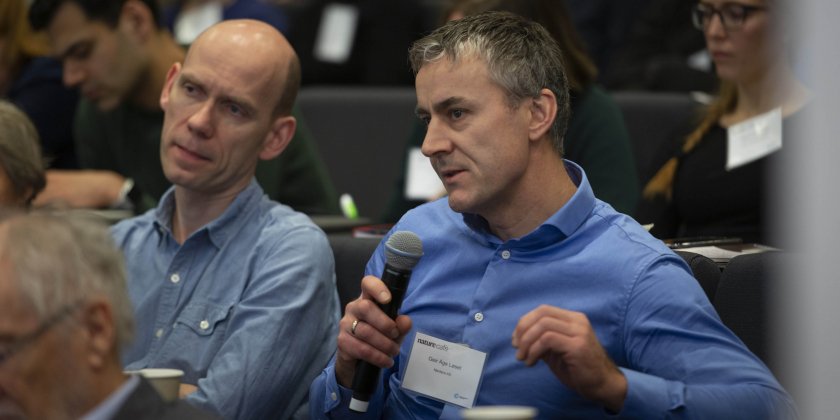
Members of the audience were eager to find out more about this rapidly growing area of research. Photo: Christian Tandberg
Why did we arrange this event?
The Norwegian research environment in cancer immunotherapy is world-class. But Norway is a small country and researchers need access to international partners and expertise to develop their findings.
The purpose of the event was to highlight recent findings in T cell immunotherapy. There was also the opportunity to discuss ongoing challenges and opportunities in the development of these types of treatments.
Among the guests were several prominent Norwegian cancer researchers, the pharma industry, hospital clinicians, biotech start-ups, and more. During the seminar, many of the participants in the audience asked follow-up questions and the café breaks were buzzing with conversations between researchers.
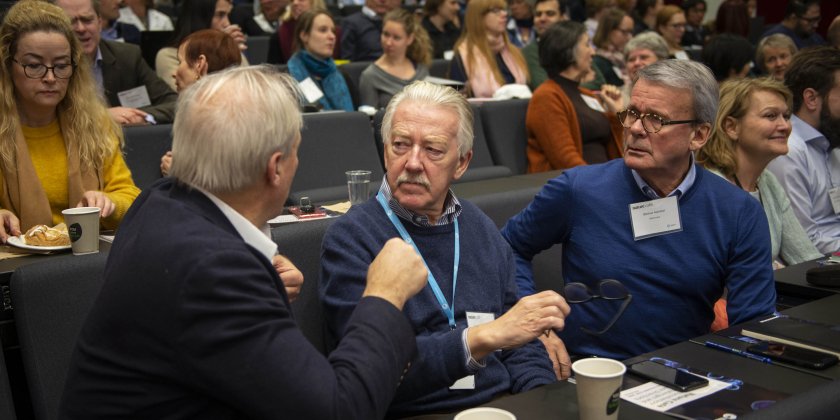
The event was an opportunity to discuss with and learn from prominent researchers in the cell therapy field. Photo: Christian Tandberg
Watch the video below to see a few of the participants’ reactions:
Meet the speakers
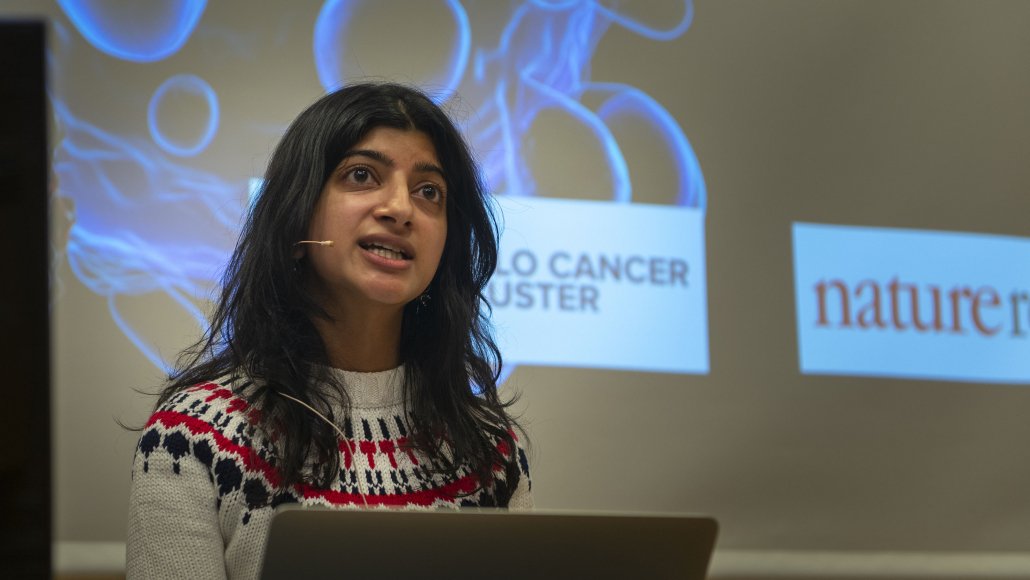
The moderator for the event was Saheli Sadanand, Associate Editor, Research Manuscripts at Nature Medicine. Photo: Christian Tandberg
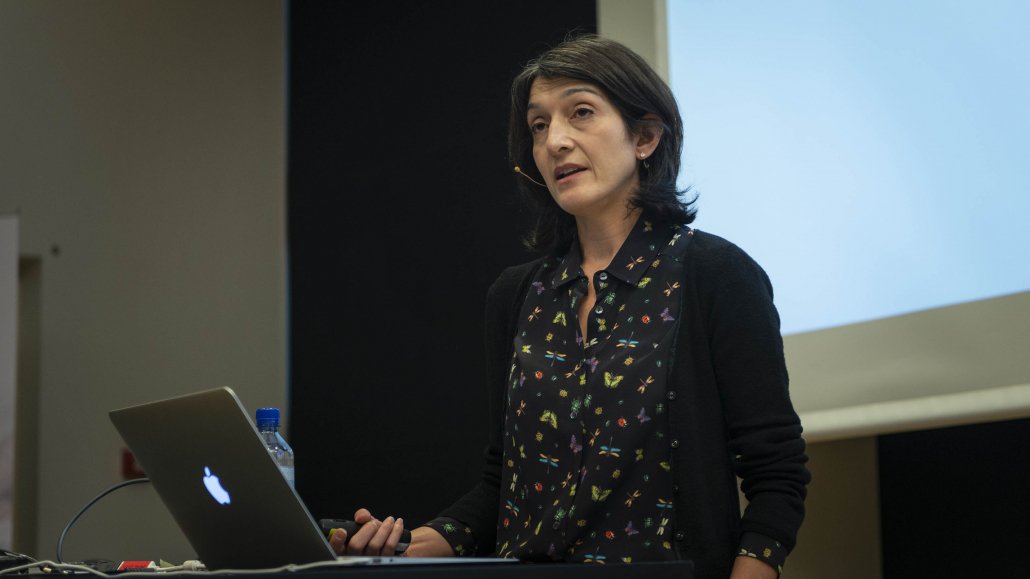
The first speaker was Sara Ghorashian from the University College London. Dr. Ghorashian is a consultant Paediatric Haematologist at Great Ormond Street Hospital for Children in London, and the co-investigator or lead UK investigator for six different CAR T cell clinical trials. She talked about her research to improve outcomes of CAR T cell therapy in patients with acute lymphoblastic leukemia. This is a type of cancer in the blood. Photo: Christian Tandberg
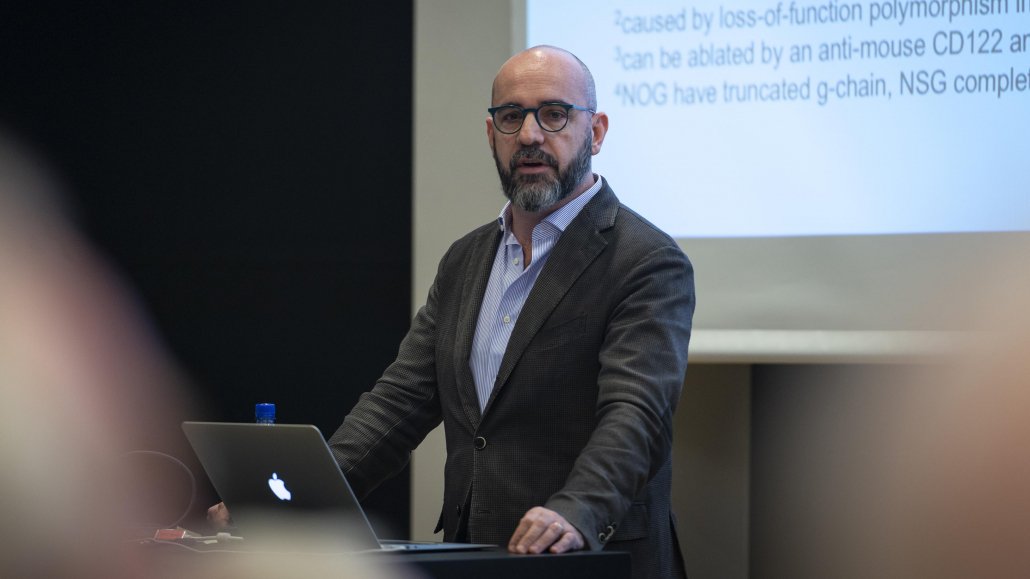
The second speaker was Attilio Bondanza, who is a physician-scientist and the CAR T cell program leader at Novartis Institutes of Biomedical Research in Basel, Switzerland. Before joining Novartis, Dr. Bondanza was a professor at the San Raffeale University Hospital, where he led the Innovative Immunotherapies Unit. Dr. Bondanza talked about his work to model CAR T cell efficacy and CAR T cell-induced toxicities pre-clinically. Photo: Christian Tandberg
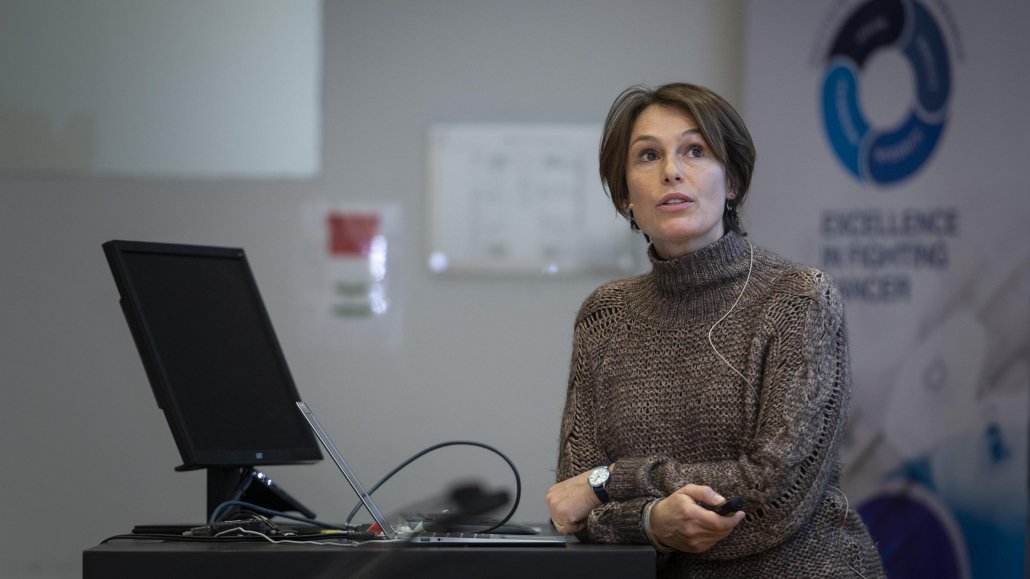
The third speaker was Sara Mastaglio, who is a physician scientist specialising in haematology at San Raffaele Scientific Institute, in Milan. She has been actively involved in the development and clinical application of CAR T cell therapies. Dr. Mastaglio discussed her research on genome-edited T cells for the treatment of haematological malignancies. Photo: Christian Tandberg
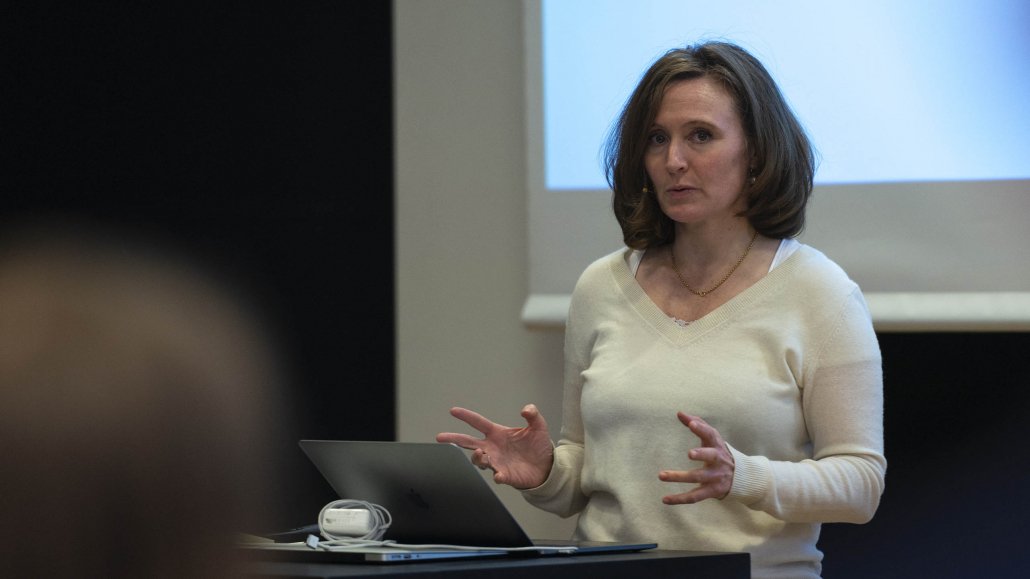
The last speaker was Aude Chapuis, who is an assistant member of the Fred Hutchinson Cancer Research Center in Seattle. In addition to running a lab, she sees patients as an attending physician at the Fred Hutch Bone Marrow Transplant Program at the Seattle Cancer Care Alliance. Dr. Chapuis discussed mechanisms of response and resistance to instruct next generations of T cell receptor gene therapy. Photo: Christian Tandberg
Want to find out more?
In February 2020, the journal Nature Research will publish an article with a more detailed overview of the speakers, their presentations and the research. We will provide a link here when it is available!
If you enjoyed this event, please subscribe to our newsletter to receive invitations to our upcoming events and a digest of our latest news.
We want to thank our sponsors for helping us make this event happen.



